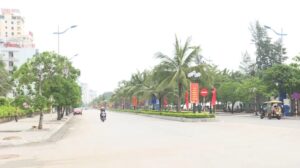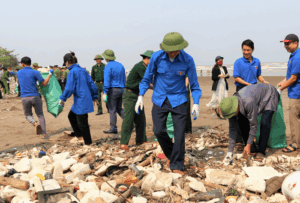Viet Nam's environmental protection tax law needs international co-ordination for it to have an impact on global pollution, experts said at a seminar yesterday.
Otherwise, companies would simply relocate and move the pollution problem with them, they said, adding that Viet Nam should raise local awareness of the need for this type of taxation.
"Green taxes need to be transparent, unambiguous and consistent in order to achieve its environmental objectives as well as public and business understanding," said Roy Chowdhury, head of the taxation department of the UK Association of Chartered Certified Accountants (ACCA).
"The tax is going to raise not only governmental income but also social awareness of environment protection.
"Public trust in a green tax system is vital, and the Government and policy experts need to strike a balance between the need to raise revenues and the environmental objectives underpinning the policy," said Chowdhury.
The seminar was jointly organised by the Viet Nam Tax Consultants Association (VTCA) and ACCA in HCM City.
VTCA Chairwoman Nguyen Thi Cuc said that the Government should ensure that the implementation and monitoring procedures under the new law should be thorough for the sake of transparency and effectiveness.
Under the law that was passed by the National Assembly last November, there will be eight product groups that the tax will be imposed on: gasoline, oil and grease; hydrogen-chlorofluorocarbons (HCFC); plastic bags; chemical herbicides; pesticides; forestry product preservatives; and warehouse disinfectants that carry restrictions on their use.
Viet Nam's Law on Environmental Protection Tax, which will take effect as of January 1, 2012, is awaiting a decree guiding its implementation.















